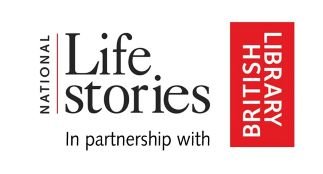
Flavio Gracias
Flavio Gracias, born in Mombasa (Kenya), came to the UK in 1968 to study at university
Part of the external The British Library oral history collection
About
Flavio Gracias was born in Mombasa (Kenya), in 1941. His father was from Colva, Goa and arrived in Mombasa in the 1920s. After finding out that he would not be treated as a local student at university in Kenya, Flavio came to the UK in 1968 to begin his higher education.
Flavio Gracias was interviewed in 2012 by Selma Carvalho for 'Oral Histories of British Goans from Colonial East Africa'. Between 2011 and 2014 the Goan Association UK co-ordinated a project to record oral histories of the Goan Community living in the United Kingdom. This project was funded by the National Lottery Heritage Fund and was managed by Selma Carvalho. Carvalho published a book based on the interviews titled A Railway Runs Through: Goans of British East Africa, 1865–1980 (Matador, 2014). The full interviews are archived at the British Library under collection reference number C1557. Flavio Gracias' interview is British Library reference C1557/33, © The Goan Association.
Listen to Flavio talking about coming to the UK to attend university and his first impressions of landing at Luton Airport.
Interview conducted by Selma Carvalho, 2012.
FG: February, at the end of February 1968. What had happened was, I joined university, and then I found that the university would not accept me as a local student because I still held on to my British status. And so after a long battle with the university, and they were quite emphatic about it, they said that there is no way that they would treat me as a local student, I would have...they would treat me as a foreign student. And the fees were four times as much as that of a local student. And so I decided that if I'm going to do further education, I would have to leave Kenya. And at the end of February or early March, the British Government were introducing the first of the Nationality Acts that came into being, and they were going to differentiate between the overseas British citizens and local ones. So on the February 28th, I think, I caught a plane, with a suitcase, and I left, and landed at Luton Airport one cold February...
SC: So, at that time...
FG: Evening.
SC: You could in fact arrive in the UK without any other type of visa necessary?
FG: Yes, you didn't have a visa, which...you didn't require visa because you had a British passport. So, in my case, I naturalized myself so I had a full British passport. For many of those who are born in Mombasa, they had a protected passport, because Mombasa...a strip of land where...a few miles was the freehold of the Sultan of Zanzibar, and it was leased by the British Government, and that bit was a protectorate. And anyone born in Mombasa was a British-protected citizen rather than a full British citizen. So if you wanted full British citizenship, you had to naturalize yourself, which I did at some stage before Kenya became independent.
SC: And when you arrived at Luton Airport, what were your first impressions?
FG: The first impressions was that I could not believe that you had trees with no leaves. It was very cold. And it was quite dark, although it was sort of quite only late in the afternoon. And I was met at Luton Airport [by] one of my ex-students from the African school who had emigrated to the UK.
For all permissions requests for audio and video clips and their transcriptions from external collections, please contact the original project or organization.
Entry credit
Laura Owen
